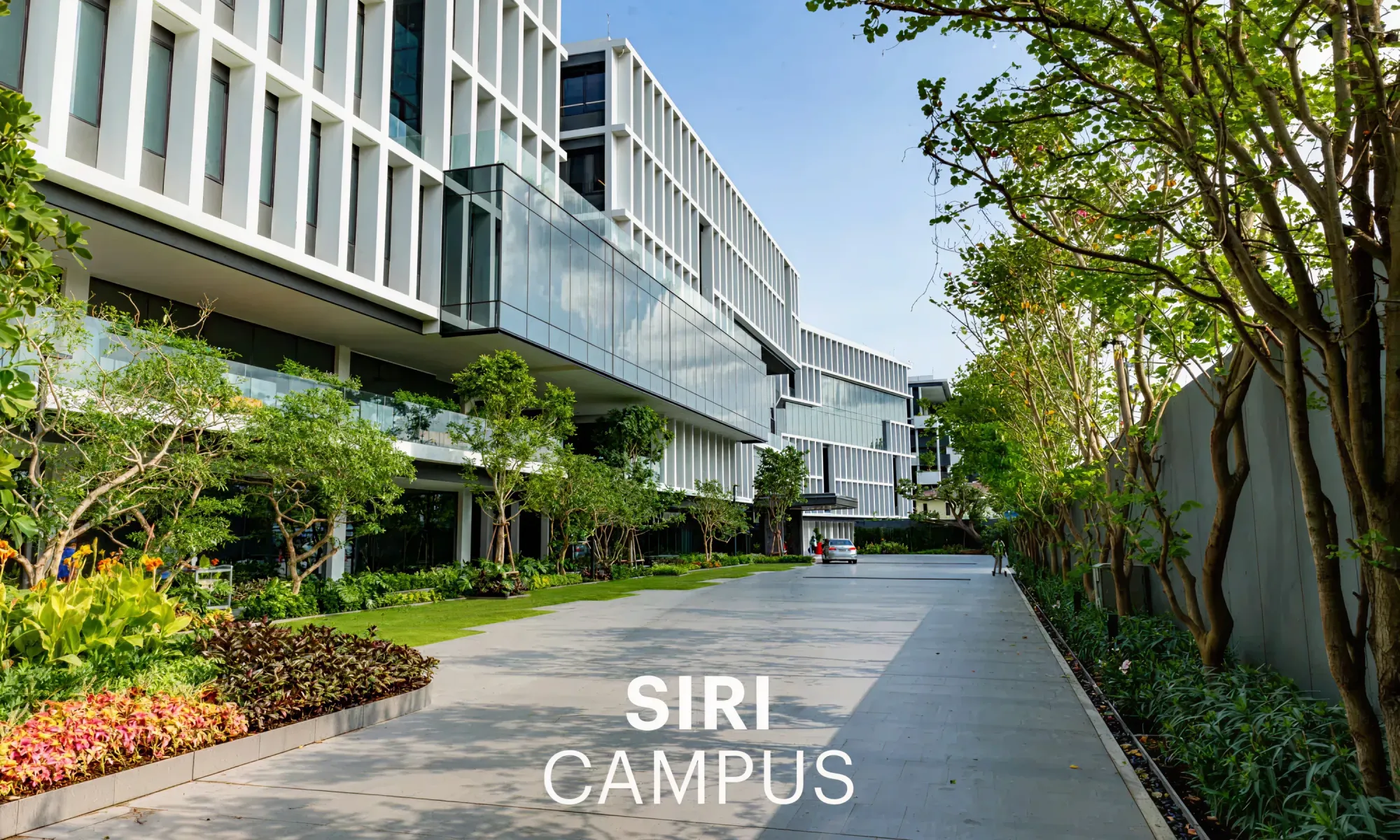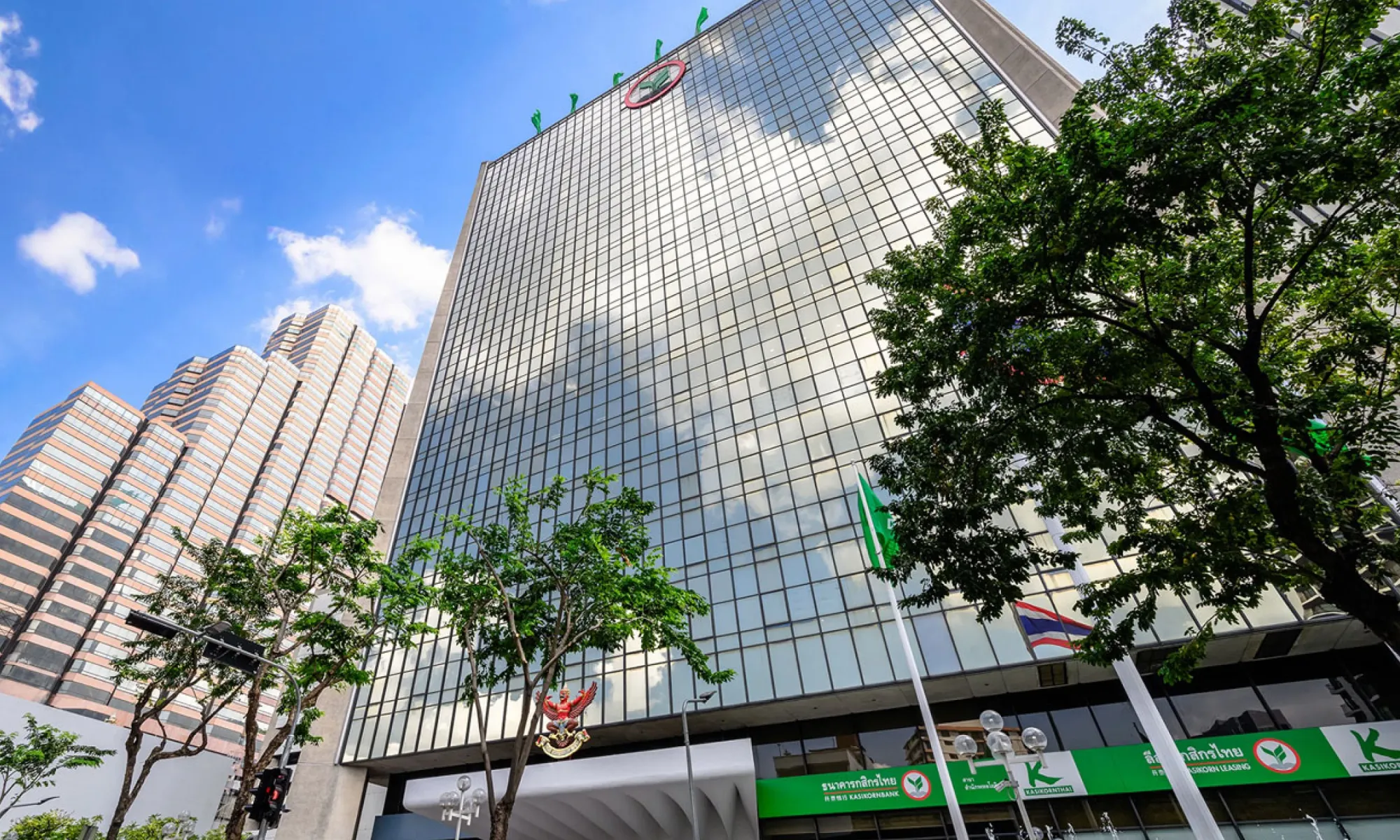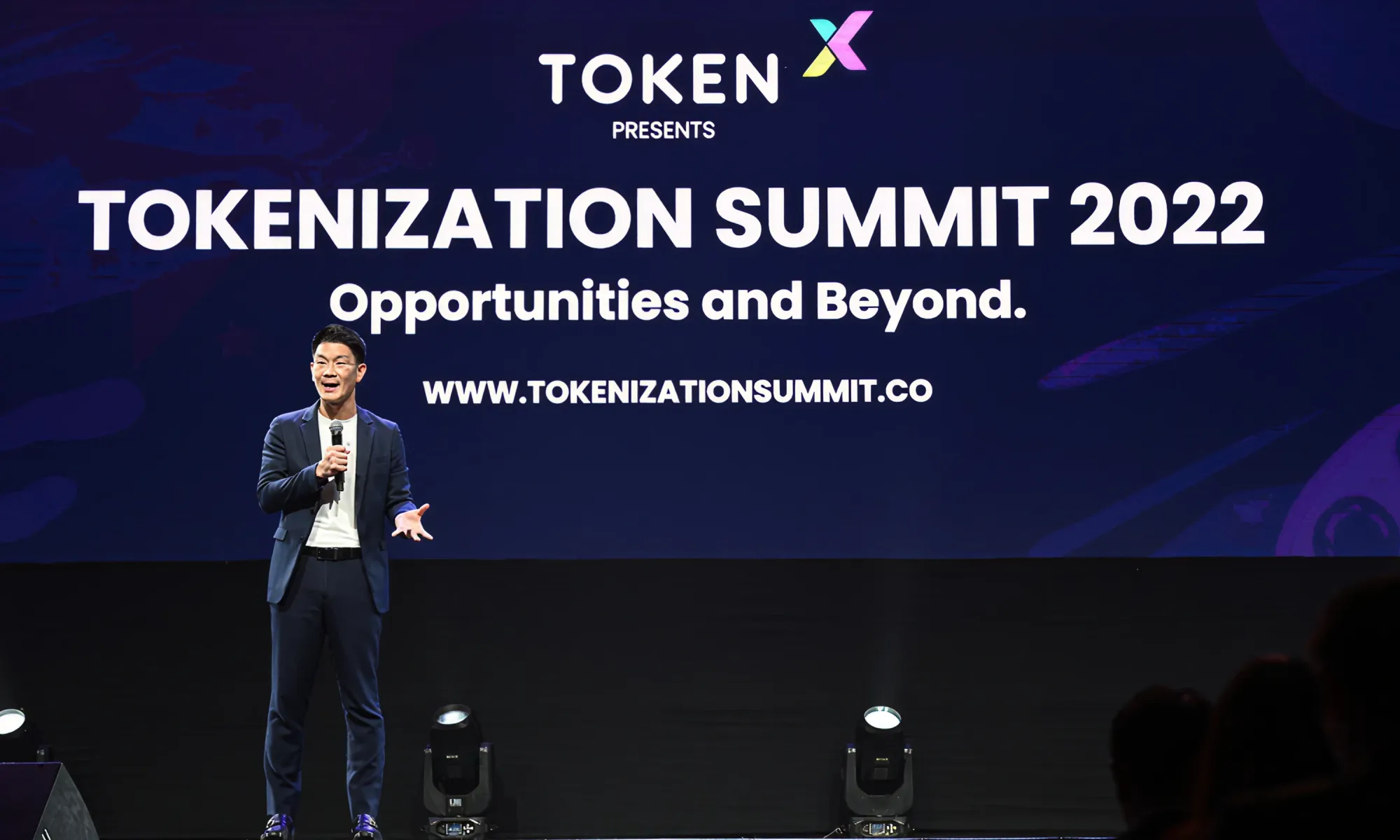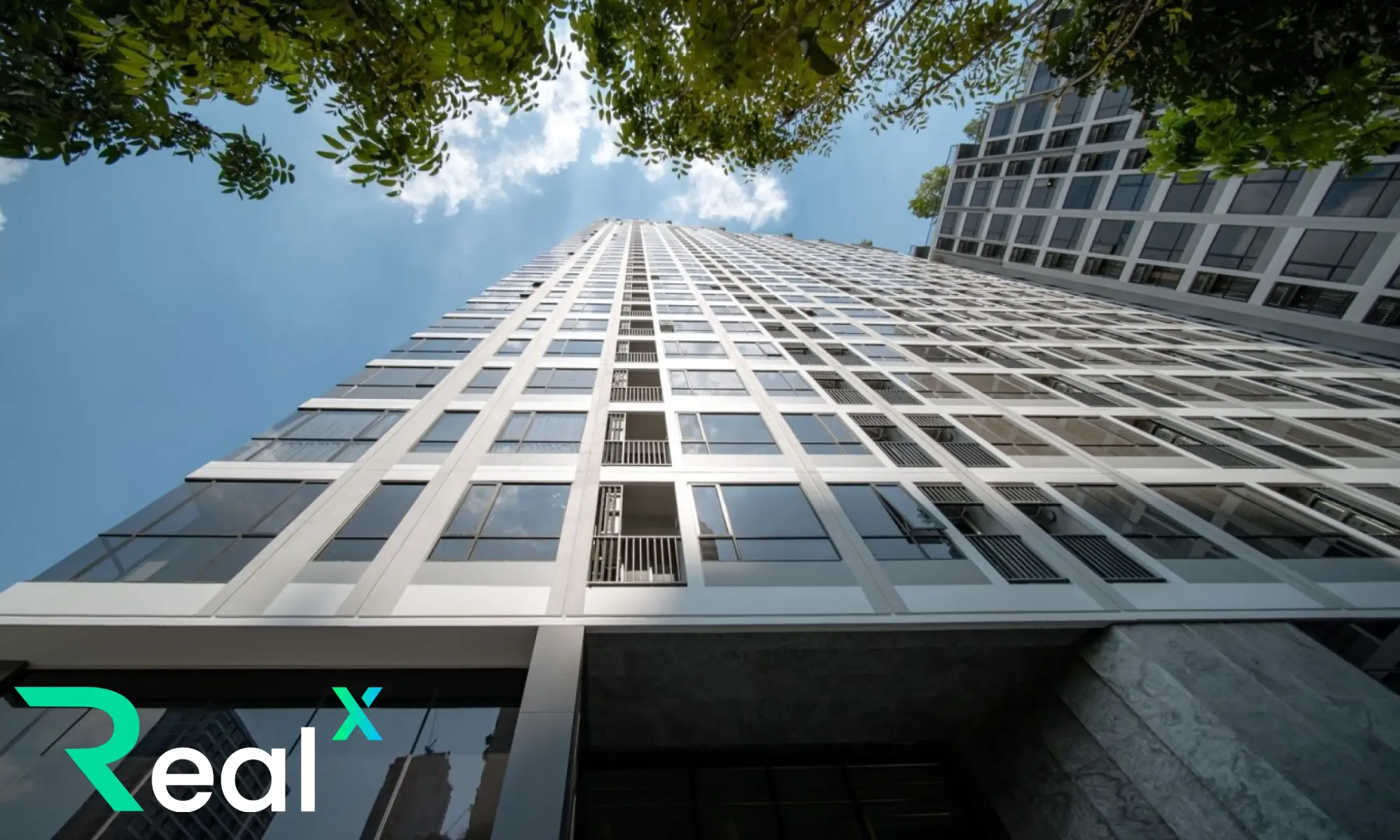Tokenization in Thailand
Continuing our journey — today we land in sunny Thailand 🇹🇭, where real estate meets blockchain innovation.

Real estate tokenization isn’t just a tech buzzword – it offers a new way to invest in property. Traditionally, investing in buildings or land required a lot of money or going through complex funds. Now, with tokenization, a property can be broken into many digital shares. Each share (token) gives the holder a stake in the property or its income. For example, instead of needing to buy a whole condo, an investor could buy a few tokens that represent small portions of that condo. A global accounting firm explains tokenization as “converting the value of a physical property into digital tokens... each token representing a fractional ownership stake”. In practice, this means more people can invest in valuable real estate by buying just a small token rather than an entire building. This concept is especially exciting in a country like Thailand, where property values in big cities can be high – tokens let regular people put in a small amount of money and still get a foot in the door of the real estate market.
Early Steps in Thailand’s Tokenization Journey

Thailand has been exploring real estate tokenization for a few years now. The first major step came in 2022, when one of the country’s biggest property developers, Sansiri, backed a new digital token called SiriHub. This was Thailand’s first SEC-approved real estate-backed token offering. Through the SiriHub token, the general public could invest in a portion of a real estate project with a minimal amount of money. In fact, investors reportedly could start with as little as a few dollars, making property investment much more accessible than ever before. This pioneering project showed that Thai regulators were willing to allow innovation in real estate investment. It set a precedent: if a token is properly backed by property and approved by authorities, it can be sold to everyday investors as a new form of investment. The success of SiriHub proved the concept and built confidence that fractional property tokens can work under Thailand’s rules.
Thai authorities didn’t stop at just approving one project – they actively created a friendly environment for more tokenization. In early 2023, Thailand’s government announced tax breaks for companies issuing investment tokens. This policy meant that businesses launching real estate tokens (or other investment tokens) could get exemptions from certain taxes, encouraging more players to try tokenization. Officials expected these investment token offerings to raise around 128 billion baht (about $3.7 billion) over two years. This bold move sent a clear signal: the Thai government sees digital tokens as a legitimate way to raise funds for projects, including in real estate. By reducing taxes on token offerings, Thailand made it more attractive for property developers and startups to consider launching tokenized projects, knowing that the government wants this market to grow.
Big Banks and Companies Jump In

The interest in tokenized real estate in Thailand isn’t limited to startups or one-off projects. Major Thai banks and companies have also jumped into the fray. For example, Kasikorn Bank (KBank), one of the country’s largest banks, has been actively developing blockchain and token projects. In 2023 KBank made a significant move by acquiring a local crypto exchange. This acquisition (the Satang exchange platform) signaled that KBank is serious about building a broader digital asset ecosystem. Around the same time, KBank also launched a $100 million venture fund to invest in Web3 and fintech startups, showing its commitment to the future of blockchain and tokenization. By purchasing an exchange and funding tech innovation, the bank is essentially laying the groundwork for tokenized assets to be traded and utilized within Thailand under proper supervision.

Siam Commercial Bank (SCB), another top bank in Thailand, has taken a slightly different approach but with the same enthusiasm. SCB created a subsidiary called Token X to handle tokenization services. Token X provides end-to-end support for creating digital tokens that are considered securities – which includes tokenized real estate. SCB’s involvement is notable because it brings a high level of trust and expertise to this new field. When a major traditional bank sets up a dedicated tokenization arm, it reassures investors that these digital assets will be managed responsibly and in line with regulations. Both KBank and SCB have been working closely with the Thai SEC (Securities and Exchange Commission) on these projects. Rather than going it alone, these banks are cooperating with regulators to ensure their token initiatives are fully compliant. This collaboration between big financial institutions and the government has been crucial in turning tokenization from theory into reality in Thailand.
RealX – Turning Condos into Tokens

One of the most exciting projects showcasing tokenization in Thailand is RealX, which is the country’s first condominium-backed digital token. Launched in 2023, RealX was a collaboration between a leading condo developer (Origin Property), an investment firm (Real Estate Exponential), and SCB’s Token X platform. The idea behind RealX is straightforward: take high-end condominium units in Bangkok and split their value into many blockchain-based tokens. In total, 361 units across three luxury condo projects were tokenized into small pieces. At a press event, the CEO of Origin Property explained that each RealX token equals roughly one square inch of a condo unit. In other words, instead of needing to buy an entire apartment, an investor could buy, say, 50 square inches of a unit by purchasing 50 tokens. This innovation meant that someone could invest in a prime-location Bangkok condo with a very small sum of money, gaining exposure to the property’s rental income and potential future sale, all through token ownership.
Crucially, the RealX tokens were offered through an SEC-regulated process. The project went through Thailand’s official approval steps for digital securities. In mid-2023, RealX held an initial coin offering (ICO) – essentially a public token sale – which was approved by the SEC. During July to August 2023, RealX sold 13.19 million tokens to the public, raising about 2.4 billion baht (roughly $67 million). Each token was priced at 182 baht (around $5) in the offering. The fact that RealX raised such a large amount from the general public shows there is strong demand for these kinds of investments in Thailand. Many everyday investors seized the chance to put some money into RealX tokens, effectively becoming partial owners of the condos. After the ICO, RealX became the first digital asset to be listed on Thailand’s official digital asset exchange (TDX) in late September 2023. It also began trading on other licensed platforms like Bitkub. By trading on regulated exchanges, token holders could later sell their real estate tokens or buy more, much like trading stocks – but under the oversight of Thai financial authorities.

RealX is structured to give investors real benefits from the underlying property. Token holders are entitled to a share of the rental income generated by the condos (paid out quarterly), and later, they will get a share of the proceeds when the condos are sold, since the project plans to gradually sell off the units over a 10-year period. In fact, the project even planned to burn (retire) some tokens as units are sold, to reflect that those portions of the property are no longer available. All of this is managed transparently via smart contracts and supervised by trustees (in this case, SCB Asset Management acts as the trustee ensuring investors’ rights). The RealX case is a powerful proof of concept: it shows that in Thailand, one can legally tokenize real estate, get regulatory approval, raise substantial funds from the public, and operate a token in a way that investors receive real financial returns from property.
Supportive Regulation and Recent Rule Changes
Thailand’s regulatory authorities have played a key role in making tokenization feasible. The Thai SEC, which oversees securities and digital assets, set up a clear framework for “investment tokens” under the country’s digital asset laws (initially established in 2018). Real estate tokens like RealX fall under this category, meaning they must follow rules similar to other securities – including disclosures, investor protections, and licensing of the platforms that issue or trade them. Early on, the SEC required that any token offering be conducted through an approved ICO portal (a licensed platform that vets and hosts token sales). Projects like SiriHub and RealX used such licensed portals (for example, Token X served as the ICO portal for RealX). This ensured that offerings were reviewed and met certain standards before reaching investors.

As the token market evolved, Thai regulators didn’t sit still. Seeing the potential of tokenized real estate, the SEC adjusted some rules to encourage wider participation. One major change came in January 2024, when the SEC removed a previous investment cap for retail investors. Under the old rules, a regular individual could invest at most 300,000 baht (around $8,500) in any given real estate or infrastructure-backed token offering. This limit was initially set to protect people from taking on too much risk. However, it also meant that even if someone wanted to invest more in a promising project, they legally couldn’t exceed that cap. In early 2024, after the success of initial projects, the SEC lifted this cap. Now there is no specific maximum for how much a retail investor can put into tokens backed by real estate or infrastructure. By removing the limit, regulators opened the door for enthusiastic investors to buy more tokens, which in turn helps tokenized projects raise funds more easily. The SEC stated in the Royal Gazette that this change was effective from January 16, 2024. The move reflects confidence that with proper regulations in place, Thai citizens can be given more freedom to invest in these new assets.
Beyond that, Thai regulators have created spaces to experiment and innovate with blockchain assets. In 2024, the SEC launched a Digital Asset Sandbox program to let companies trial new ideas (like novel tokenization models) under a controlled environment. This sandbox allows projects that might not fit neatly into existing laws to operate on a limited scale while the SEC monitors them, so that the rules can eventually be updated. Notably, Thailand’s rules explicitly recognize real estate tokens and set requirements for them, treating them as securities that grant rights in a property or project. All the key players in the tokenization process – exchanges, brokers, asset managers, advisors, and even custodial wallet providers – are covered by Thai regulations and may participate in the sandbox. By providing clear definitions and a trial space, Thailand’s regulators are showing that they want to embrace tokenization in a sensible way, rather than ban it. This regulatory clarity gives companies the confidence to develop token projects and gives investors confidence that protections are in place.
A Collaborative Approach with Regulators

One striking aspect of Thailand’s journey into tokenization is the close collaboration between the public and private sectors. Regulators, banks, and tech companies in Thailand have been working hand-in-hand to ensure that tokenized real estate develops safely and successfully. The Thai SEC and other authorities have largely been proactive and supportive. For example, Thailand’s current prime minister, Srettha Thavisin, took office in 2023 and is known to be quite crypto-friendly. He was the CEO of a major real estate firm (Sansiri) and even launched the SiriHub token through XSpring in 2022, as mentioned earlier. Having a former real estate tycoon who personally dabbled in digital tokens at the helm of the country sends a strong positive signal. His government even proposed distributing 10,000 baht in digital currency to every Thai citizen as an economic boost, leveraging blockchain-based “digital wallet” technology. Although that specific initiative has faced some delays, it underscores the top-level endorsement of blockchain ideas.
Thai officials have also given special attention to certain token projects. The government sees real estate tokenization as a way to stimulate investment and economic activity. In fact, when the SEC removed the investment cap, observers noted that the regulator clearly views tokenized real estate as a tool to boost the economy and broaden investor opportunities. Rather than treating crypto-related ventures with suspicion, Thai authorities are often taking the lead in encouraging them. A recent summit report noted that across Southeast Asia, regulators are often driving tokenization rather than blocking it – and Thailand is a prime example of this trend. Regulators here have not hesitated to update laws, issue licenses, and even offer incentives, as we’ve seen, to support growth in the token market. This doesn’t mean there are no rules – on the contrary, it means the rules are being crafted to fit the new technology.
The cooperative atmosphere can also be credited to the approach of the companies involved. Thai banks and startups working on tokenization emphasize compliance and partnership with regulators. Local experts observe that banks and developers in Thailand are working with regulators, not against them. They aren’t trying to sneak around the law; instead, they frequently consult the SEC and adjust their business models to meet legal requirements. One tokenization pioneer who chose Thailand as a base for operations learned that you must “work hand-in-hand with the regulators” to succeed. In his view, no tokenized project will ever reach the market unless it is built in cooperation with the authorities. This philosophy has proven true – the successful launch of projects like RealX and SiriHub was possible only because the teams engaged with regulators early and met all the conditions set by law. By co-creating solutions with the government (for example, figuring out how to custody assets or handle investor protections in a blockchain context), Thai projects have managed to avoid regulatory roadblocks. This symbiotic relationship – innovators working with watchdogs – has become a hallmark of Thailand’s tokenization scene and is paving the way for long-term, sustainable growth of the industry.
Thailand’s Tokenization Outlook in a Global Context

Thailand’s experiment with real estate tokenization is not happening in isolation. It’s part of a bigger global movement to digitize assets and democratize investment. But Thailand is carving out its own path by mixing innovation with pragmatism. The country now has real, live tokenized properties (like the condos in RealX) that people can invest in, and a set of rules that make those tokens legitimate. This puts Thailand among the leading nations in this space. The impact is significant: more Thai residents can invest in high-value real estate than ever before, companies have new ways to raise capital, and the property market gains a new avenue for growth. By turning property value into digital tokens, Thailand is essentially opening the real estate market to a wider population, much like other forward-thinking markets are doing. For instance, Dubai has integrated tokenized property into its legal system, allowing investors to buy fractions of buildings through regulated platforms. And in Japan, over 70 tokenized real estate projects have launched since 2021 under clear rules, showing how quickly the concept is spreading in major economies. Just as Dubai is positioning real estate tokens as a way for anyone to invest, Thailand is now emerging as a hub in Asia where tokenization can thrive under supportive oversight.
Looking ahead, Thailand’s real estate tokenization is poised to grow further. With the first wave of projects like SiriHub and RealX proving that the model works, more developers and asset owners are likely to consider tokenizing their properties. We can expect to see a greater variety of assets being tokenized – perhaps commercial buildings, infrastructure projects, or even tourism-related properties – given that the framework now exists. The continued support from regulators means new projects can come online faster and with more confidence from investors. Of course, investor education will be important; many people will need to become familiar with how digital tokens work and what the risks are. But as understanding grows, tokenization could become a routine part of investing in Thailand, as normal as buying stocks or mutual funds.
In conclusion, Thailand’s journey shows how a country can embrace a cutting-edge idea like blockchain tokenization in a practical, inclusive way. By working closely with regulators, Thai businesses have turned a novel concept into real opportunities for the public. A young Thai investor today might buy a token that represents a slice of a new condo in the city – something that was unimaginable just a few years ago. That token can earn them rental income and potentially rise in value if the property market climbs. It’s a new chapter for Thai real estate, one where ownership can be shared broadly and investment opportunities are open to all. With its blend of innovation, regulation, and cooperation, Thailand is showing how tokenization can move from hype to reality – and in doing so, it is putting itself on the map as a leader in the future of real estate investment.

